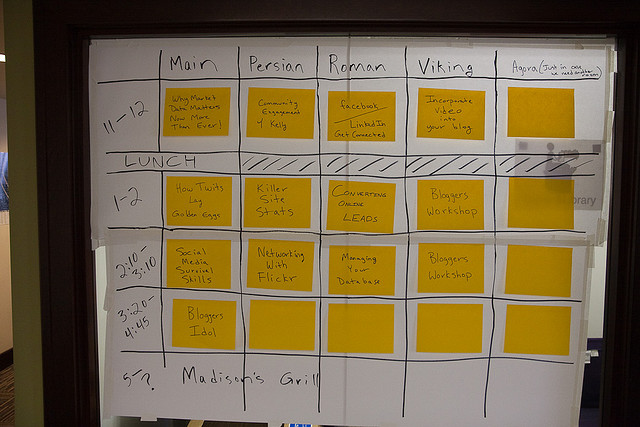On the 25th of June the New York Times published an article by Barnard Lunn entitled Build an Insanely Great Web Service. Not only is this article worth reading because it gives the reader the opportunity to read the work “suck” as a descriptor in a New York Times article which I just find amusing, but it offers a great model of the engagement thresholds that websites and services need to think about. The article is written using a start up web service as a model. The applicability of what the author Mr. Lunn says does not stop there, however. The concept can easily be transferred to any website and web service. Viewed through the lens of real estate sites, we see a clear structure in which to think about how users interact with websites. The time thresholds that he lays out are:
- 30 seconds: “I get it.”
- 3 minutes: “I’ve used it and still get it, and it has not annoyed me yet.”
- 3 days: “I find this really useful or fun.”
- 3 weeks: “I am raving about this to other people.”
- 3 months: “I couldn’t imagine not having this, and I’m boring my friends telling them about it.”
- 3 years: “How weird to see this on Oprah.”
(Lunn, Barnard, New York Times 6/25/09)
Now, I am not saying that your real estate website is going to end up on Oprah — though I would not rule it out. But in the mean time, lets look at this structure in the context of a well designed real estate site being used by an interested potential buyer. (Please note that I am going to add a threshold that I feel was overlooked):
- After 3 seconds visitors should like the site design, be able to identify where they should look first and find it easy to read. (Things to think about: Design and Layout)
- After 30 seconds visitors should have clear idea of what your site has to offer them and most importantly what the next step is that they can take. (Things to think about: homepage content and calls to action)
- After three minutes, your visitor has used some of the functionality on your site. If it is well organized and the functionality is intuitive, they will still see the value in your site because they will find that they can easily access the information that they are interested in. (Things to think about: ease of use of your sites functionality and navigation)
- After three days they have fully explored your site, read information on you, your market area and used all the applicable functionality. They find it useful and at this point contact you. (Things to think about: quality and amount of information available, easy and obvious conversion tools)
- After three weeks they have found that your website integrates seamlessly with their property search process and your personal service. They continue to use the site to save searches and ask you questions as you set up viewings. (Things to think about: Lead management and contact utilities)
- After three months they have found the house they want and close on it. They can’t imagine what the process would have been like without your website and your personal attention. (Things to think about: how integrated is your website to your current client management)
- After three years they are ready to buy again and call you . . . or they see you on Oprah and are really impressed. (Things to think about: the value of continued contact with past clients, how good Oprah looks in that pant suit!)
Using these time thresholds as a structure to think about your website is a great way to take a tough look at how your site encourages the engagement of potential and existing clients. If your site is not up to snuff, the possibility of losing potential buyers at any one of these 6 stages is a very serious reality.
The moral of the story is always look at your site from the user’s perspective. Your site should be all about what the potential client is looking for and what you can offer them that they haven’t even thought of yet.


